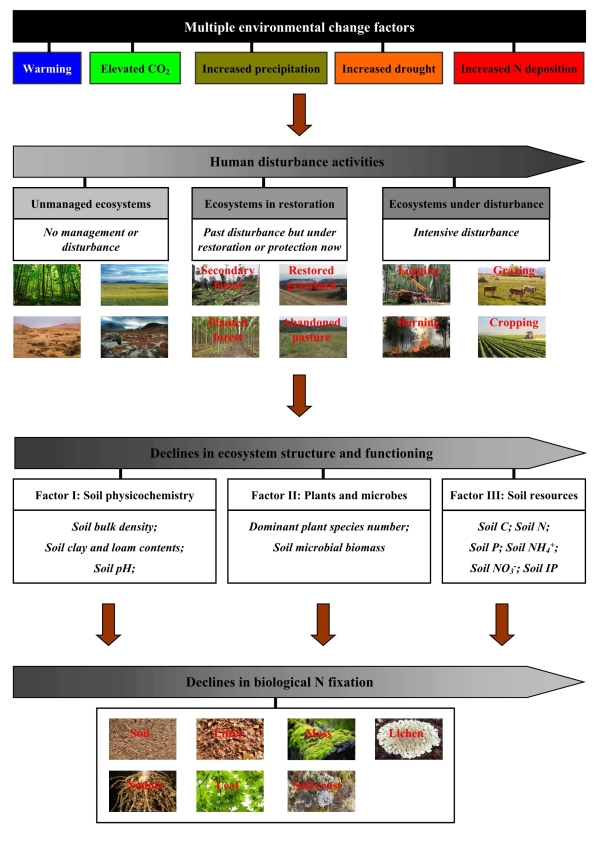

Biological nitrogen (N) fixation, a key process of N conversion performed by symbiotic or free-living N-fixing organisms, plays an important role in terrestrial N cycling and represents a key driver of terrestrial net primary productivity (NPP). Despite the importance of N fixation in terrestrial ecosystems, our knowledge regarding the controls on terrestrial N fixation remains poor.
To explore how human disturbance activities and environmental change factors affect biological N fixation and explore the mechanisms underlying these effects., Dr. ZHENG Mianhai, under the guidance of Prof. MO Jiangming, and his colleagues from South China Botanical Garden of Chinese Academy of Sciences compiled a global dataset of biological N fixation in different ecosystem compartments (soil, leaf litter, mosses, lichens, fresh leaves, root-nodules, and biological soil crusts) and in response to multiple environmental change factors (warming, elevated carbon dioxide, increased precipitation, increased drought, increased N deposition, and their combinations).
To investigate the effects of human disturbance on N fixation, they divided the field ecosystems into three types: unmanaged ecosystems, ecosystems in restoration, and ecosystems under disturbance. To explore the mechanisms underlying the anthropogenic effects on N fixation under environmental change scenarios, they analyzed the changes in soil physicochemical properties, plant and microbial characteristics, and soil resources.
They found that human disturbance inhibited terrestrial N fixation under environmental change scenarios. This phenomenon was associated with the changes in soil physicochemical properties, plant and microbial characteristics, and soil resources, which were induced by human disturbance activities.
Their study for the fist time reveals the effects of human disturbance activities and multiple environmental change factors on terrestrial N fixation as well as the mechanisms underlying these effects, and their findings improve the understanding, estimation, modeling, and prediction of terrestrial N budgets, NPP, and ecosystem feedbacks in a changing world.
The above findings have been published in Global Change Biology, entitled “Effects of human disturbance activities and environmental change factors on terrestrial nitrogen fixation”. For further reading, please refer to: https://doi.org/10.1111/gcb.15328.

Figure. Human disturbance activities and environmental change factors regulating terrestrial nitrogen fixation

